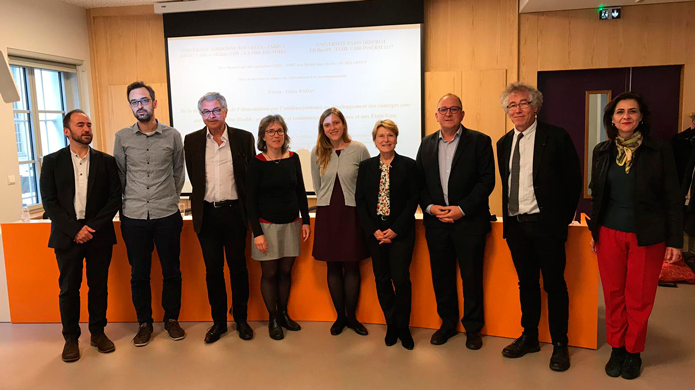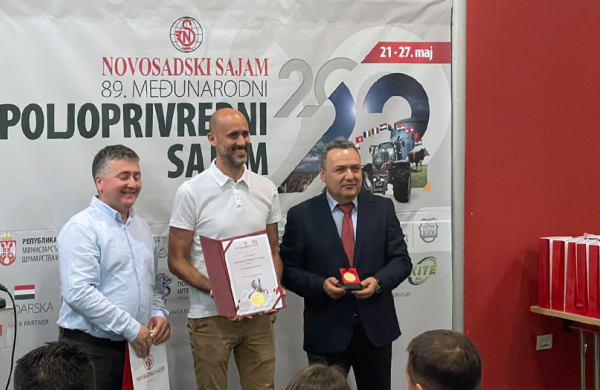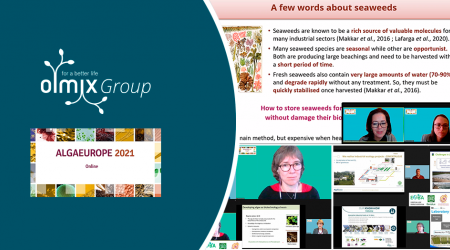Ms Badau defended her doctoral thesis on May 20 at the University Sorbonne Nouvelle Paris 3 in France.
Ms Estera Badau, Olmix Group PhD, has successfully defended her thesis with the title “From the recognition of the link between antibiotic resistance and food to the development of the ‘antibiotic- free’ production and the ‘One Health’ approach: publicization and communication in France and the United States”.
Through a private-public CIFRE collaboration, the thesis has been financed by Olmix and addresses the communication around antibiotic resistance and its link to food, an important public health problem. At the interface between natural and social sciences, the thesis is based on a highly interdisciplinary approach within the field of social and human sciences. It describes subjects of communication and discourse analysis based on a crossover reflection between political philosophy and sociology of public problems and applied to the antibiotic resistance issue
The thesis has been realized under the direction of Jocelyne Arquembourg-Professor in Information and Communication Sciences at the University Sorbonne Nouvelle Paris 3, and the co-direction of Antoine Andremont-Professor emeritus in Microbiology at the University Paris Diderot, and under the company tuition of Olmix Group’s Scientific director Pi Nyvall Collén, all participating in the thesis jury.

Ms Estera Badau and jury members.
The President of the jury was Olivier Vandenberg Professor at the University Libre de Bruxelles, and examinators were Professor Jacques Walter from University Lorraine and Professor Laura Calabrese from the University Libre de Bruxelles, with Nicolas Fortané-researcher at CNRS and Marie France Chambat Houillon-HDR at University Sorbonne Nouvelle Paris 3.
The main objective of the thesis was to analyze and shed light on the process of publicizing and communication of the links between antibiotic resistance and food that have led to the development of the concepts ‘One Health’ and ‘antibiotic free’. In a cross-country perspective between France and in the United States, the study covers the period between 1980 and 2016 and focalizes on the use of antibiotics in animal husbandry. While the increased public awareness of the links between antibiotic resistance and food relies on the scientific knowledge, the thesis demonstrates that the way this knowledge has been processed and used by society is very different in these two countries. The results uncover two models of communication in two different societies regarding the same public health problem. They can be a valuable tool to the national and international authorities regarding the public communication and the governance of the antibiotic resistance problem.
All members of the jury agreed on the value of this ambitious and innovative thesis.
Abstract
In a cross-country perspective between France and the United States, this research analyses the process of publicizing the links between antibiotic resistance and food, as well as its contribution to the development of the antibiotic free production and the implementation of the One Health approach. Starting with the awareness of the antibiotic use in livestock consequences, the study relies on the pragmatist approach of the constitution of the public problems. It is based on wide corpora composed by documents published between 1980 and 2016 (written press, institutional literature and semi-directive interviews). The analysis method uses textometric tools derived from discourse analysis and focuses on the emergence of formulas that name the problem, its causes and its solutions. The comparison uncovers an opposite process between the two countries. In France, this process is part of a top-down approach and is characterized by a late publicization following the European and international health authorities’ initiatives. The consumer associations taking over the problem, as well as the agri-food actors’ commitment to the antibiotic free production, is very recent. In the United States, this process reveals a bottom-up model following a non-governmental organizations public constitution taking over the problem. Their mobilization has contributed to the development of the antibiotic-free breeding programs, as well as to place the problem on the government agenda that launched a national plan in a One Health approach.




